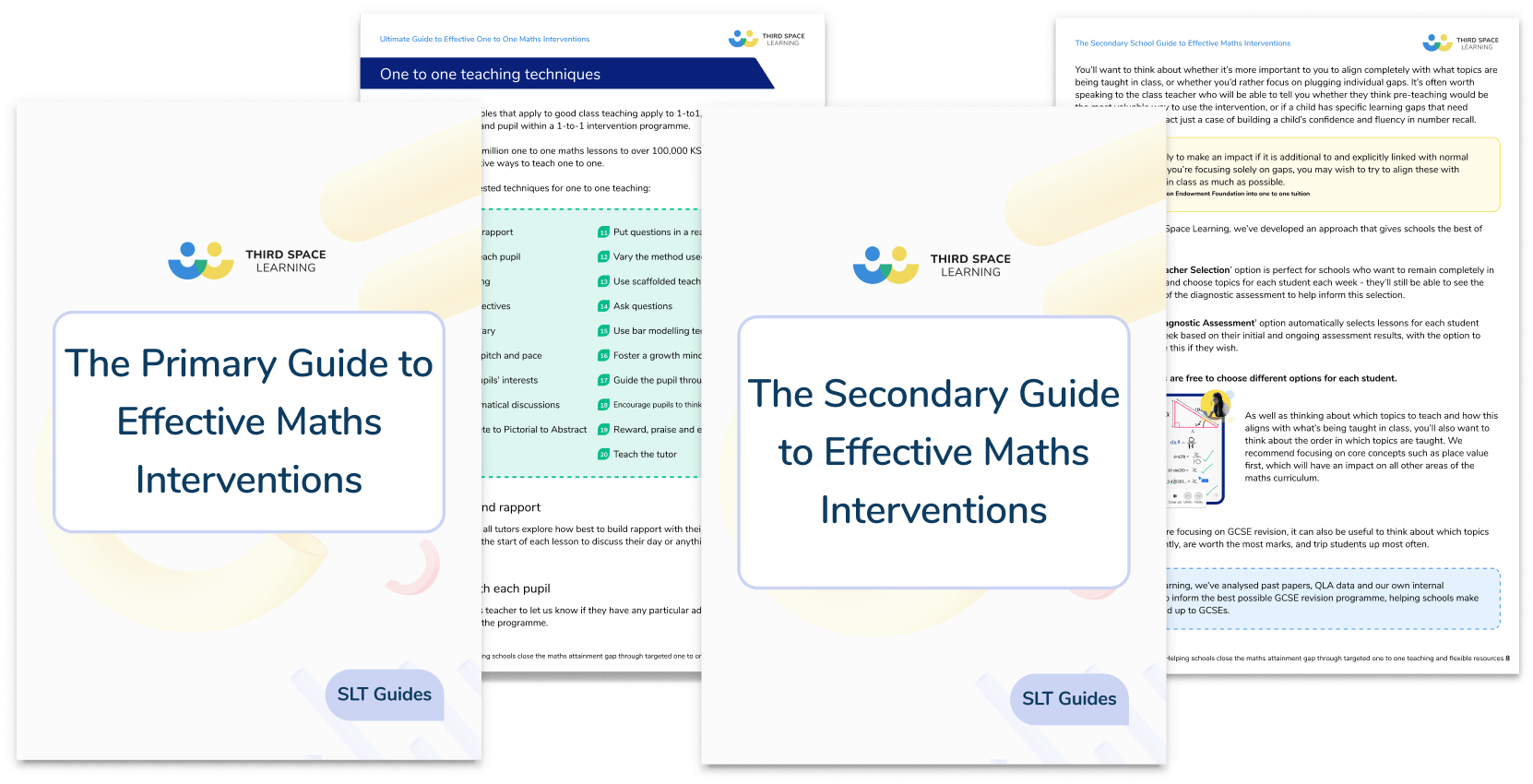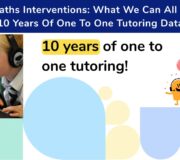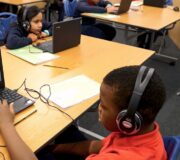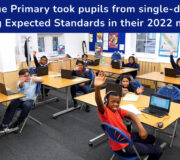How We’re Making Our Online Intervention Programmes And Resources Even Better This Academic Year
At Third Space Learning, we’re always looking at ways to improve our offering for teachers and pupils – whether that’s through our one to one maths intervention programmes or the resources and CPD in our online resource library, The Third Space Maths Hub.
With some pupils having missed up to 5 months of traditional in-class teaching, we know this September brings new and unique challenges. It’s now more important than ever that our interventions and resources provide effective support to help pupils re-engage with their learning and catch up quickly and efficiently.
With over 6,000 pupils from 500+ schools signed up to receive weekly online maths lessons from our specialist KS2 maths tutors this academic year, we’ve spent the summer taking an in-depth look at all our pupil, teacher and tutor feedback (that’s data from over 750,000 lessons over the last 6 years!) to make sure our one to one intervention programmes are as personalised and impactful as possible.
The Ultimate Guide to Effective Maths Interventions
Find out how to plan, manage, and teach one to one (and small group) maths interventions to raise attainment.
Download Free Now!This has resulted in three key changes to our online one to one intervention programme.
1) Better reflecting a Mastery approach to maths
Our curriculum team has reviewed our lesson and curriculum structure to enable pupils to spend more time learning with their tutor and learning could be even more personalised to each pupil’s individual knowledge gaps.
From September 2020, rather than breaking the curriculum down into ‘lessons’, pupils will work through individual ‘Learning Objectives’. This brings our intervention programmes more in line with a mastery approach and schemes of learning such as White Rose maths.
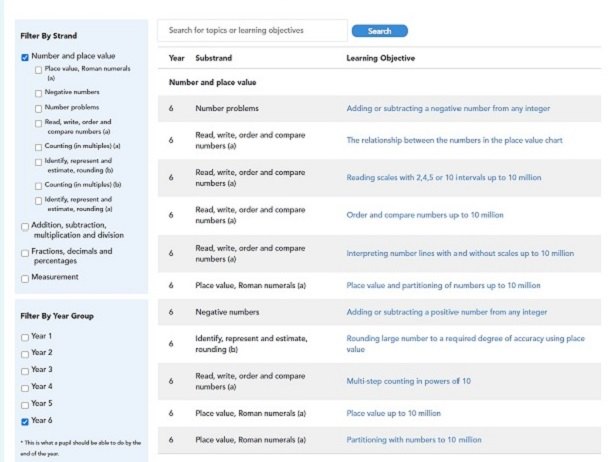
Each Learning Objective will be its very own self-contained mastery unit, broken down into 5-8 teaching slides which focus on one objective only. These slides will each follow the same new mastery structure; Concept, Practice and Application:
First, the tutor will introduce the concept covered by the unit before moving on to guiding the pupil in practising the relevant skill or concept. Finally, pupils will practise applying the concept to a problem independently, mirroring the ‘I, WE, YOU’ approach pupils might be familiar with from class.
More condensed Learning Objectives also help to increase the pace of learning pupils can work through multiple Learning Objectives in one 45-minute session and seamlessly transition from one session to the next.
2) Diagnosing even more specific gaps in learning
We’re also making some changes to our start-of-programme, in-lesson and end-of-programme assessments to bring our assessment approach in line with our new ‘Learning Objective’-focused structure.
Because Learning Objectives focus on one objective only, our assessments now diagnose the specific Learning Objectives that will plug a pupil’s individual knowledge gap.
This then means we can suggest exactly which objectives need to be covered to plug that gap, rather than an entire lesson, which may include content the pupil is already secure with.
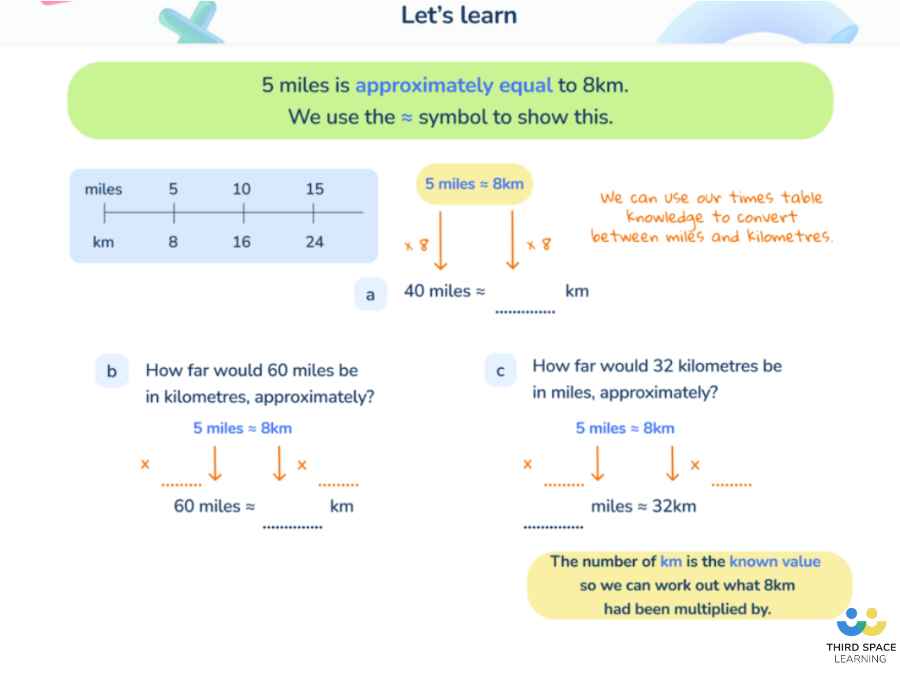
Combined with our new mastery units, this change helps us ensure pupils can catch up in exactly those places they have gaps in learning, and do so more quickly.
3) Making progress reports even more helpful and informative
Teachers have always valued our session reports as a way of keeping up with what their pupils have covered in their Third Space sessions.
But with the new ‘Lesson Objectives’ structure, we needed to update our reports to help teachers follow exactly what progress has been made against more specific learning gaps.
At the end of each session, pupils will answer multiple choice questions related to each Learning Objective covered. These Post-Session Questions are an excellent way of seeing lesson-by-lesson progress; they highlight whether a pupil has understood a concept as well as to what extent.
Pupil feedback and engagement is now front and centre in our reports, allowing teachers to not only see pupil attainment and progress, but also how their students are feeling about and responding to their sessions.
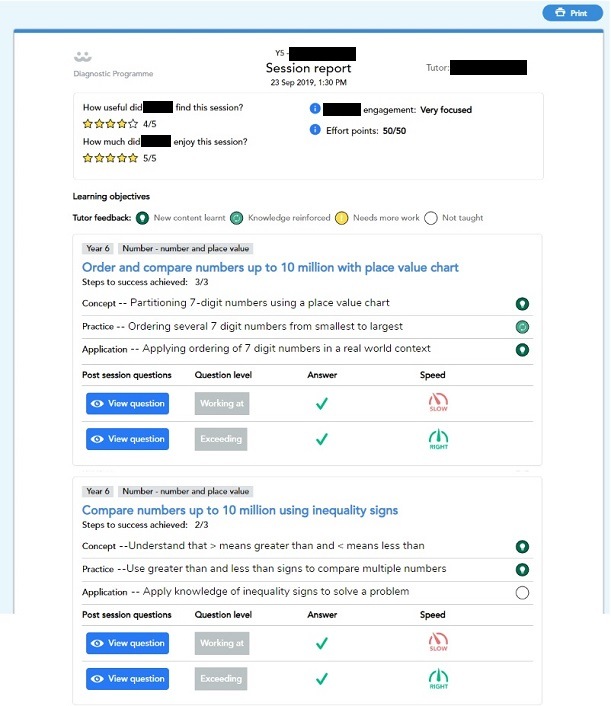
Alongside tutor feedback, this makes it easy to pick out where a pupil is struggling, or where they may not be engaged fully; it becomes plain where pupils are making progress, and where you may need to focus your own classroom teaching.
Our updated reports make it even more clear to see how pupils are getting on, how they’re feeling about their learning, what’s been covered and how much progress they’ve made against their individual gaps. This will be particularly valuable this term as teachers look to re-engage their pupils with learning after so long away from the classroom.
New and improved resources
As well as reviewing our 1-to-1 intervention programme, we’ve also been busy making sure our online resource library – The Third Space Maths Hub – is full to the brim with helpful resources to support your catch up teaching this year.
Not yet registered for the Maths Hub? You can do so here. It’s free to register and access a limited number of our resources, but to access everything you’ll need to upgrade to a whole school Maths Hub account.
New and improved lesson slides
Our ready-to-go lesson slides are some of the most popular resources in the Third Space Maths Hub. In fact, last academic year they reached a whopping 57,540 downloads!
Designed to save you time, these popular ready-to-go Powerpoints follow a mastery approach and are aligned with the National Curriculum and based on the White Rose maths framework.
This year we’ve made our lesson slides even better:
✔️ Printable worksheets for every lesson to help pupils to practise applying what they’ve learnt in the lesson independently.
✔️ Specific activities to support teachers in using Assessment for Learning.
✔️ New support slides and suggested tasks to help address gaps and recover lost learning.
✔️ Relevant sentence stems for all lessons with examples and ways to use.
✔️ A handy CPD presentation designed to be used as an informative introduction to our ready-to-go lessons.
✔️ Improved teaching notes for those who want some extra guidance on recommended ways to tackle each task in the lesson.
✔️ Easier navigation and a clear overview of what’s included.
✔️ Improved variation and progression to help pupils make connections, spot patterns and apply their learning.
✔️ Answers on the same slide as the question means live modelling during guided practice is even easier.
✔️ Colour, font, text weight and spacing changes to make our lessons easier for dyslexic pupils to access.
You can learn more about how we’ve made our ready-to-go lesson slides even better for this academic year here.
Worked examples
This autumn we’ll be continuing our popular Worked Examples Worksheets, first launched in spring 2020.
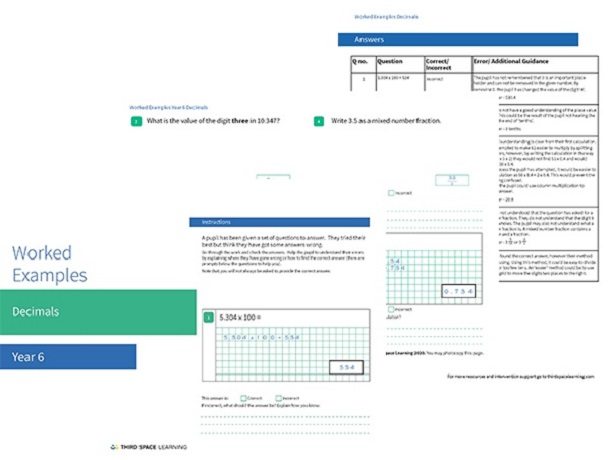
Each worksheet contains completed questions for pupils to check, comment on and correct, encouraging them to find and explain errors, not just focus on finding the correct answer.
These worksheets have proved so popular that we’re continuing them this academic year and extending them to Key Stage 1 as well as Key Stage 2! Keep your eyes on the Maths Hub for your Autumn Term Worked Examples – coming very soon!
Code crackers
Another popular resource launched in Spring 2020, Code Crackers is designed to help your pupils recap their learning in a fun and engaging way.
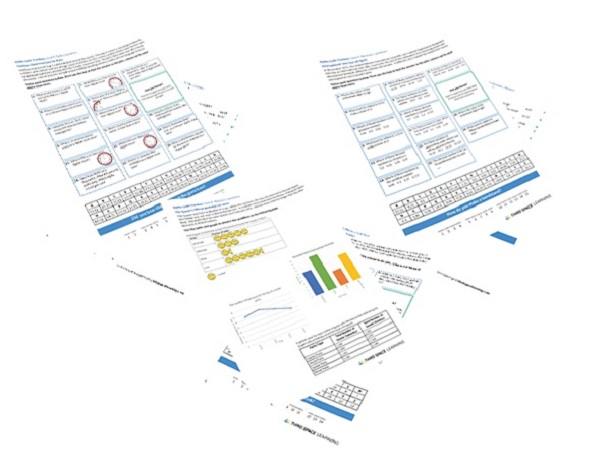
Aligned with each White Rose blocks, these retrieval activities will see your pupils solve a series of questions to find the punchline to a joke.
Keep an eye on the Maths Hub for Code Crackers for the Autumn Term – coming very soon!
Topical 365
Putting maths into a real-world context is a key part of teaching it, especially at the primary level. But pupils tire of the same contexts quickly – there are only so many times someone can buy an unusual number of watermelons, after all!
Topical 365 is our answer to this problem; a different short activity for every day, based on events occurring on that date. This year we’ve given Topical 365 a facelift!
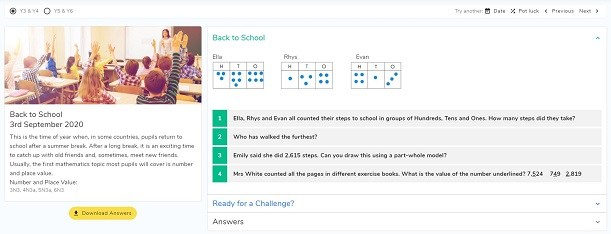
Activities for the coming year will have more practical, real world links, and provide more opportunities for problem solving for a variety of different topics, keeping pace as pupils move through new maths topics through the year.
As the new school year begins, we can’t wait for you to start using our newly updated interventions and resources as part of pupils’ maths learning, and see the impact they can have for yourselves!
DO YOU HAVE STUDENTS WHO NEED MORE SUPPORT IN MATHS?
Every week Third Space Learning’s maths specialist tutors support thousands of students across hundreds of schools with weekly online maths tuition designed to plug gaps and boost progress.
Since 2013 these personalised one to one lessons have helped over 150,000 primary and secondary students become more confident, able mathematicians.
Learn about our experience with schools or request a personalised quote for your school to speak to us about your school’s needs and how we can help.

